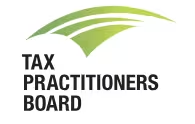End of year financial strategies

Contributions review
As always there are two concerns here, especially if you wish to maximise the contributions made and the dangers of going over concessional (CC) or non-concessional contribution (NCC) caps.
For concessional contributions, there is a universal standard cap of $25,000 that applies if you qualify. But if the total super balance (TSB) on 30 June 2020 is less than $500,000, you can have the benefit of carrying forward any unused concessional contributions. These are the concessional contributions under the cap that haven’t been fully used since 1 July 2018.
Time frames are always important if you wish to claim a tax deduction for personal concessional contributions. An election must be made within your SMSF, setting out the amount being claimed, and must be lodged with the fund. This must be done before personal tax returns are sent to the ATO for the 2021 financial year and no later than the end of the financial year after the contribution was made. Remember, there’s a bit of a twist as you need to lodge the notice with the fund before any part of the contribution is withdrawn or used to start a pension. The SMSF also needs to acknowledge its election before you lodge the income tax return.
A major consideration in making non-concessional contributions (NCC), which are not tax-deductible, is the amount of an investor’s TSB. The TSB determines the amount that can be contributed to an SMSF without facing a tax penalty. If a TSB is more than $1.6 million, a penalty will apply to any NCC made and this may mean even having to withdraw any excess.
If you have a TSB of less than $1.6 million, and qualify to make an NCC into your SMSF, you may be able to immediately make up to $300,000 over a fixed three-year period. The standard NCC is $100,000, but for anyone under 65 it is possible to bring forward up to the next two years’ standard NCC if you have a TSB of less than $1.5 million. If a TSB is less than $1.4 million, you can bring forward the next two years’ standard NCC and if it is between $1.4 million and $1.5 million, you can bring forward just one year’s standard NCC.
If you have triggered the bring-forward rule in either 2018/19 or 2019/20, then the total NCC may be either $300,000 or $200,000 respectively, provided the maximum TSB has not been exceeded as at 30 June 2020.
Indexation of caps – strategy
From 1 July 2021, the TSB will increase to $1.7 million and the standard NCC will rise to $110,000. Those under 65, thinking of using the bring-forward provisions this financial year, may wish to seek further advice to see what can provide the greatest benefit. Where the amount of the caps changes, there are nearly always strategic advantages from the timing of NCCs. For example, there may be advantages in making some contributions in late June and taking advantage of the indexed amounts from 1 July this year.
Accessing the Government co-contribution
Individuals with assessable income (2) of below $54,838 may qualify for the government co-contribution of up to $500 if they make a non-concessional contribution of $1,000 before 30 June 2021. To qualify for the co-contribution:
- at least 10% of assessable income must be received from employment or a self-employment arrangement
- the individual must be below age 71 at the end of the financial year
- they must have Total Superannuation Balance of less than $1.6m on 30 June 2020 and;
- they must lodge a tax return for the 2020/21 income year
Make a spouse contribution
Couples with one spouse earning a low income or no income, may benefit from the spouse tax offset if the high-income earner makes a spouse contribution into the low-income earner spouse’s superannuation. The maximum offset that can be claimed is $540 where the low-income earner spouse’s income is below $37,000 (3) and $3,000 is contributed before 30 June. As well as the tax benefit available to the high-income earner spouse, the strategy can also help to build up superannuation savings for the low-income earner spouse.
Contributions splitting
Another way to increase a spouse’s super is implementing the contribution splitting strategy. The strategy allows eligible spouses (married or de facto) to split up to 85% of concessional contributions (including mandatory employer contributions) made in the prior financial year. The split must occur before the end of the following year, i.e. 30 June 2021 is the deadline for splitting concessional contributions made in the 2019/20 income year.
First Home Super Saver Scheme
Individuals saving for their first home may benefit from making voluntary contributions to super before 30 June. The FHSS Scheme allows first home buyers to make voluntary contributions of up to $15,000 to superannuation per financial year while saving towards the deposit in a tax-effective environment. After contributing for a couple of years, they can withdraw these contributions (up to $30,000 per individual being increased to $50,000 from 1 July 2022) and use the proceeds towards the acquisition of their first home.
SMSF Contribution Reserving
This strategy allows SMSF members to make personal deductible contributions over the annual cap in June and claim larger tax deduction for the current year.
SMSF meeting the minimum pension requirement
SMSF Trustees with members in the retirement income phase must ensure the minimum pension requirement is met before the 30th of June. Otherwise, the income stream will be taken to have ceased for income tax purposes at the start of the year and the SMSF will lose the eligibility to claim the tax-free earnings for that year.
Downsizer Contributions
This strategy allows people who are aged over 65 (reducing to 60 from 1 July 2022) who are selling a residence they have lived in for ten years to contribute $300,000 each to superannuation within 90 days of settlement without the normal restrictions on contributions. There is no age limit.
Investment strategy review
Ensuring an investment strategy accurately reflects a SMSF’s current asset allocation is an important compliance responsibility. While there is a degree of flexibility with respect to movements in overall asset allocation, it is good practice to review the current asset allocation against the documented strategy. If the fund’s current allocation falls outside the documented strategy, you may wish to make an adjustment to either so they fall back into line.
Some of the more common situations where SMSF investment strategies should be reviewed include:
- trustees purchasing property for their fund, but not updating the investment strategy to reflect the purchase,
- an asset class, such as listed shares, being over the fund’s target position due to significant rises or falls in the underlying holdings,
- trustees moving from accumulation to pension phase and changing asset allocation due to cash-flow needs, but neglecting an investment strategy update, and
- trustees choosing to invest in predominantly one asset or asset class – 90 per cent or more of the fund – can lead to concentration risk.
- In this situation, a fund’s investment strategy needs to document how the trustees have considered the risks associated with a lack of investment diversification. This should include how high concentrations of assets can meet the fund’s investment objectives, including predicted returns and cash-flow requirements.
Asset concentration risk is heightened in leveraged funds, especially where the fund has used a limited recourse borrowing arrangement to acquire the asset. This can expose members to a loss in the value of their retirement savings should the asset decline in value. It could also trigger a forced asset sale if loan covenants (for example, the loan-to-valuation ratio) are breached.
Capital gains tax review
In the lead-up to the end of the financial year, trustees or advisers may wish to undertake tax planning to minimise the capital gains tax position of their SMSF. This is usual where an SMSF has assets with an unrealised loss position. Trustees may seek advice on whether it is worthwhile to crystallise the unrealised losses to reduce any of the fund’s realised gains. It’s important to understand there may be tax consequences from simply selling an asset and buying it back immediately.
Asset revaluation
One of your most important obligations is to ensure, for the purposes of preparing a fund’s financial accounts, that assets are valued at market value each year. This is a legal requirement and ensures the value of the fund assets and member balances are accurate. There are valuation implications for each member’s TSB, as well as taxing the fund’s income if it is paying pensions.
The value of some of a fund’s investments may be easy to obtain, such as listed company shares and bank account balances. However, when it comes to real estate and other fund investments, market value may not be that obvious and a valuation may be required from an appropriately qualified person, such as an independent registered valuer or real estate agent.
For assets where a valuation is not easy to determine, it is necessary to obtain evidence to support whatever value you decide on as this will assist when the fund is audited. For more exotic assets, such as privately held unlisted shares, unit trust holdings or artworks and collectables, the matter can always be raised with a fund’s auditor to see whether the fund is on the right track.
Pension review
Make sure at least the minimum pension is paid for any existing pensions and the maximum level is not exceeded for transition-to-retirement income streams. A pension that does not satisfy the payment rules will mean any income on assets supporting the pension will be taxed at 15 per cent rather than be tax-exempt.
When deciding to draw more than the minimum pension, a client may wish to consider taking any amount over the minimum as a pension payment or as a lump sum. The reason is that lump sum commutations of a client’s pension balance will result in a reduction of their transfer balance account and can be used to access additional pension benefits in future.
Taxation
Prepay income protection premiums
Individuals holding income protection insurance outside of superannuation can prepay premiums for the next 12 months to bring forward the tax deduction to the current financial year. This may be beneficial where individual has larger than expected taxable income for the current year.
Prepay interest on an investment loan
Similar to prepaying income protection premiums, prepaying deductible interest on an investment loan before 30 June 2021 will bring forward the tax deduction to the current financial year.
Social Security
Gifting
Social security recipients wishing to gift an amount or an asset within the allowable disposal amount can do so before 30th June. These individuals can gift up to $10,000 before the 30th of June and another $10,000 after 1 July 2021, a total of up to $20,000 over June and July. Individuals in receipt of government benefits can gift up to $10,000 in a single financial year or up to $30,000 over 5 rolling financial years. However, the amount gifted in any given financial year cannot exceed $10,000 or the deprivation rules will be applied.
These are just some of the things you should be considering as you wrap up this financial year. We encourage you to contact our office to discuss if any of these strategies might suit your personal circumstances, goals and objectives.
---------------------------------------------
IMPORTANT: Certain eligibility requirements may apply to strategies listed. To avoid penalties, we strongly recommend seeking advice from your financial planner before implementing any of the strategies explained in this article. The information contained in this article is general information only. It is not intended to be a recommendation, offer, advice or invitation to purchase, sell or otherwise deal in securities or other investments. Before making any decision in respect to a financial product, you should seek advice from an appropriately qualified professional. We believe that the information contained in this document is accurate. However, we do not accept responsibility for any action that you take without confirming with us that it is suitable for your personal circumstances.
(1) Up to 30% if you earn $250,000 or more.
(2) Assessable income for this purpose includes assessable income plus reportable fringe benefits plus reportable employer contributions less business deductions.
(3) Income for this purpose includes assessable income plus reportable fringe benefits plus reportable employer contributions.
A compilation based in information from Graeme Colley (SuperConcepts) and AcctWeb, the latter being for added general EOY accounting topics.





